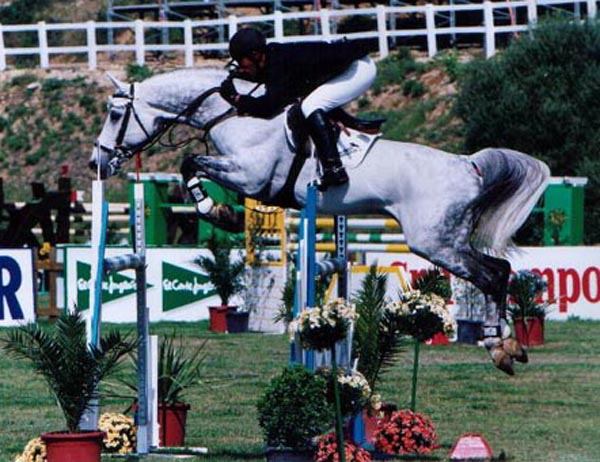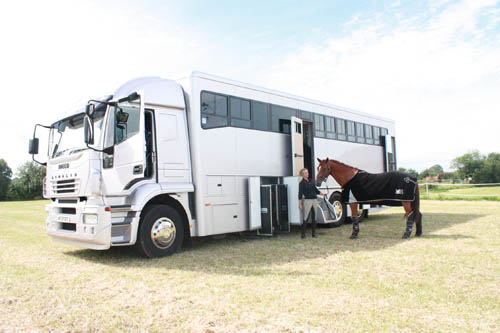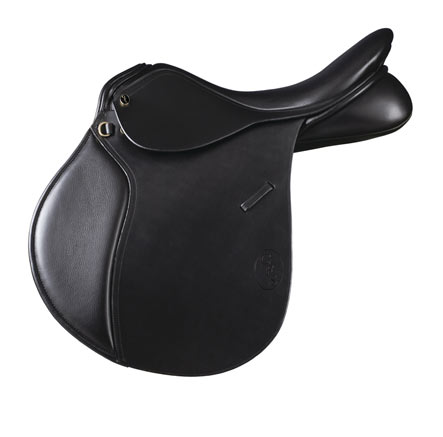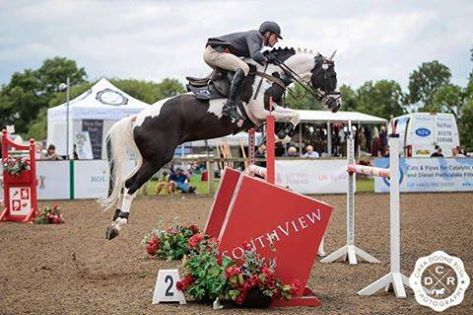Eclipse
Eclipse (1 April 1764 – 26 February 1789) was an outstanding, undefeated 18th-century British Thoroughbred racehorse who was later a phenomenal success as a sire. He was foaled during and named after the solar eclipse of 1 April 1764, at the Cranbourne Lodge Stud of his breeder, Prince William Augustus, Duke of Cumberland. It was at this stud that his sire, the Jockey Club Plate winner, Marske (by Squirt from The Ruby Mare) stood, his dam, Spiletta (foaled 1749) was by Regulus, by the Godolphin Arabian. Eclipse was a brother to the successful broodmare, Proserpine. They were inbred to Snake in the fourth generation (4m x 4f) of their pedigree. After the death of Prince William in 1765, Eclipse was sold for 75 guineas to a sheep dealer from Smithfield, William Wildman.Eclipse started racing at the age of five on 3 May 1769 in Epsom. After his second victory in a race in May 1769 the Irish adventurer Colonel Dennis O'Kelly purchased Eclipse in two parts (50 percent in June 1769 for 650 guineas, 50 percent in April 1770 for 1,100 guineas). Supposedly, at this time Captain Denis O'Kelly used the famous phrase "Eclipse first and the rest nowhere," before making his bets for this race. At that time, a horse that was more than 240 yards behind the lead was said to be nowhere. His jockey was John Oakley, supposedly the only jockey who could handle Eclipse's temperamental manner and running style of holding his nose very close to the ground. Eclipse won the race easily.
Eclipse won 18 races, including 11 King's Plates, supposedly without ever being fully extended and proving far superior to all competition. During this time he raced over 63 miles and walked 1,400 miles to race meetings across England.
Eclipse is still remembered in the phrase "Eclipse first and the rest nowhere", referring to any dominating victory. This phrase is occasionally seen in American print media (most often in newspaper sport sections), but is more common in Great Britain.
In 1771, Eclipse was retired to stud after a racing career of about 17 months due to lack of competition as nobody was betting on rival horses. Initially he stood at O'Kelly's Clay Hill Stud, near Epsom (Surrey), for a fee of 10 guineas which rose rapidly to 25 and then to 50 guineas a mare. During 1788, he was relocated to Cannons Stud, Edgware (Middlesex).
Overall, Eclipse sired 344 winners of more than £158,000 (although the number varies with different reports, ranging from 325 to 400) before he died. He sired famous horses such as Annette (Epsom Oaks), Young Eclipse (Epsom Derby), Saltram (Epsom Derby), Volunteer, Sergeant (Epsom Derby), Pot-8-os, King Fergus, Mercury, Joe Andrews, Alexander, Don Quixote, Dungannon, and Pegasus. His daughters produced Archduke, Chanticleer, Haphazard, John Bull, Meteora, Phoenomenon, Skyscraper, Stamford, Tartar, Weasel, and Remembrancer.
Surprisingly, he was never a Leading sire in Great Britain and Ireland, although he finished in second place 11 times, usually behind Herod. The Royal Veterinary College has determined that nearly 80% of modern Thoroughbred racehorses have Eclipse in their pedigree (other sources state 90%). At least 95% of living Thoroughbreds can trace their direct tail-male line back to Eclipse.
Eclipse died due to an attack of colic on 26 February 1789, at the age of 24. His skeleton is now housed at the Royal Veterinary College, Hertfordshire, in the Learning Resource Centre named after him, although it cannot be said for certain whether all the bones displayed are really from Eclipse. His hooves were made into inkstands, although the fact that there are at least five Eclipse-hoof inkstands casts some doubt about the authenticity of some. Hairs from his tail have also been used for decorations.
The Eclipse Awards are American Thoroughbred horse-racing awards named after Eclipse. They honour the champions of the sport, and are sponsored by the National Thoroughbred Racing Association (NTRA), Daily Racing Form and the National Turf Writers Association, who select all finalists at the end of the year. The most prestigious of these Awards is the Eclipse Award for Horse of the Year title.
The Eclipse Stakes is a Group 1 flat race in the United Kingdom for three-year-olds and older run over a distance of 1¼ miles and 7 yards (2,018 metres) at Sandown Park.
Eclipse Press is the book-publishing division of Blood-Horse Publications, an international publishing house for top Thoroughbred and general equine magazines, books, videos, CD-ROMs and annual references.
Sheffield-based Eclipse tools, now part of Spear & Jackson, took their name and their Eclipse first... slogan in 1909 from the horse.
The life story of Eclipse inspired the novel O'Kelly's Eclipse by screenwriter Arthur Weiss.
Nicholas Clee's Eclipse: The Story of the Rogue, the Madam and the Horse That Changed Racing (2009) is a biography of Eclipse and of the people connected to him, among them the gambler Dennis O'Kelly and the brothel madam Charlotte Hayes. Other biographies of Eclipse include Michael Church's Eclipse: The Horse, The Race, The Awards (2000), and Theodore Cook's 1907 book Eclipse and O'Kelly.



Online Tack Shop - Mark Todd Stable Rugs For Horses Pictures | Stable Construction | Event Horses | Event Horses | Horse Websites



